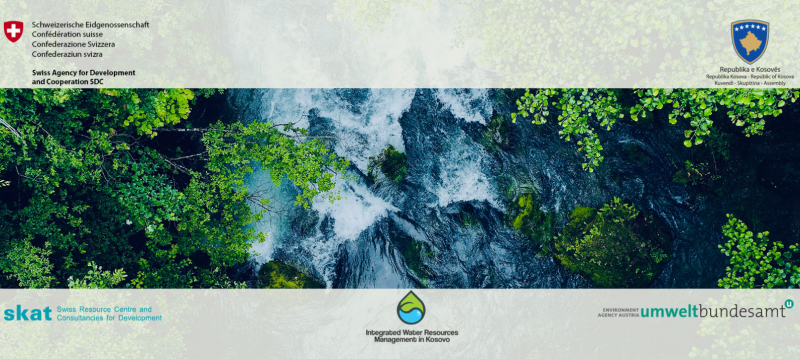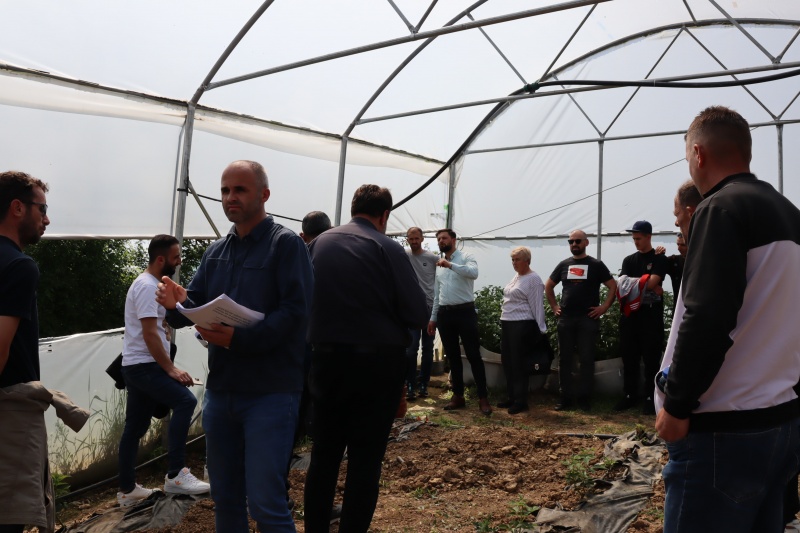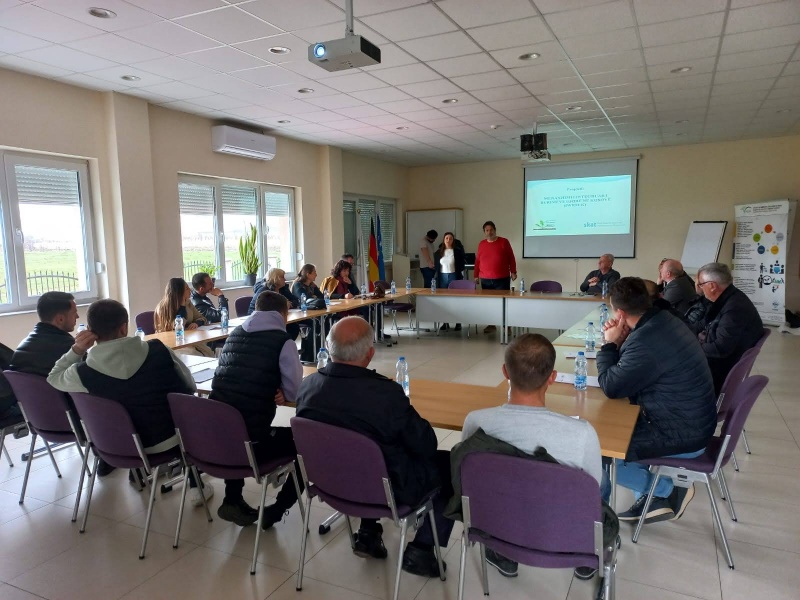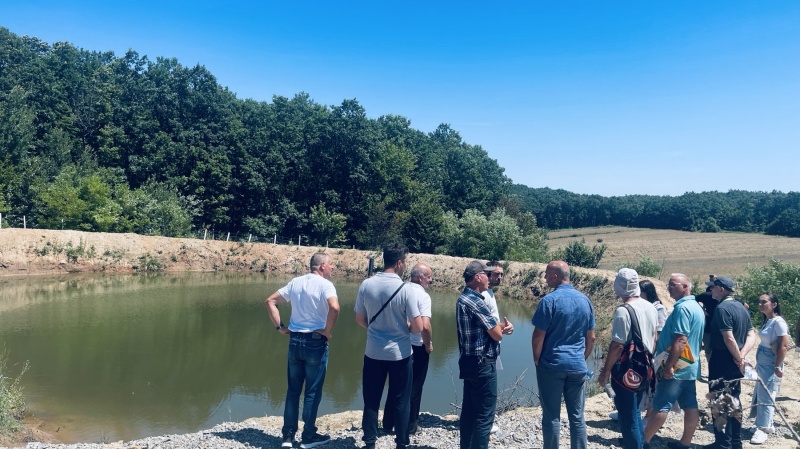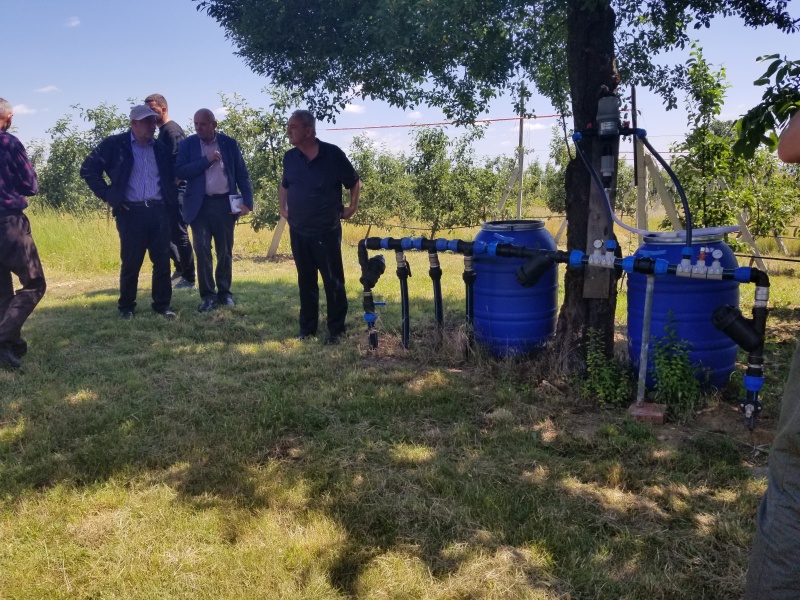Integrated Water Resources Management in Kosovo (IWRM-K)
Project Description
The ‘Integrated Water Resources Management in Kosovo’ (IWRM-K) is a 12-year transformational Program of the Swiss Agency for Development and Cooperation (SDC) and the Government of Kosovo. Its implementation has been entrusted to the Consortium of Skat Consulting Ltd., St. Gallen Switzerland, and the Environment Agency Austria. In its first phase (2020–2024), the Program aims to establish the planning framework, the knowledge and the institutional capacities needed to transform the country’s water resource management.
EPICENTAR was contracted for the first phase of the project from the period of (2021 – 12.2023) to develop and support the implementation of activities that aimed at prototyping approaches and practices for reducing the pressures from diffuse pollution from agriculture in selected areas of Kosovo. EPICENTAR within this phase directly supports the green transformation of farmers in Kosovo through development and implementation of approaches to reduce the impact of diffuse pollution caused by agriculture. This involves analyzing and prioritizing areas and target groups, designing and delivering specialized training, and implementing a grants program for farmers. The program will provide direct support to farmers to modify their farming practices and reduce the use of agrochemicals, prevent nutrient loss, and promote climate-resilient agriculture. EPICENTAR will also provide advice on adjusting existing financing mechanisms in agriculture to maximize the possibilities of scaling-up and replicating the relevant achievements of the IWRM-K.
Regarding support to public authorities in the development of reform strategies/plans for private sector development, EPICENTAR International was tasked by SKAT Consulting to conduct a comprehensive analysis of the agricultural sector in Kosovo, which covered various critical aspects, such as mapping agricultural production, current practices, and government support measures. Additionally, the team conducted a stakeholder analysis to identify key players at both national and regional levels, mapped past and ongoing initiatives, and assessed the impact of agricultural practices on the environment and the economy in the region. Key activities implemented in this phase of the project:
- Mapping of Agricultural Production and Practices: The mapping activity involved identifying the current agricultural practices and production in Kosovo to establish a baseline for the green transformation of farmers in Kosovo towards sustainable and eco-friendly agricultural practices. - As part of providing support to public authorities in the development and implementation of measures for supporting innovations or "greening" of private companies. EPICENTAR conducted an online and face-to-face survey throughout Kosovo among farmers, a sample of about 300 apple and raspberry farmers and 60 livestock farmers. The analysis of the results from the sociological survey allowed for the identification of training needs, particularly targeting smallholder farmers in the adoption of contemporary farming practices.
- Policy Environment: This activity aimed to assess the current government support measures for agriculture in Kosovo with a focus on promoting sustainable agriculture practices and greening private companies and farmers.
- Stakeholder Analysis: The stakeholder analysis involved identifying the main stakeholders in Kosovo's agriculture sector at both national and regional levels, to engage them in the green transformation process and promote sustainable agriculture practices.
- Interviews with relevant government institutions and other relevant state institutions. These interviews were essential in obtaining insights into the current state of agricultural practices and policies in Kosovo, which helped inform our activities and recommendations for promoting the green transformation of farmers in the country.
- Analysis of Sociological Survey Results: The sociological survey aimed to collect data on the socio-economic status of farmers in Kosovo to identify the training needs of farmers in adopting contemporary and eco-friendly farming practices as part of the green transformation process.
- Training Needs Assessment: This activity aimed to identify the training needs of farmers in Kosovo, with a focus on smallholders, to provide them with the knowledge and skills to adopt sustainable and eco-friendly farming practices as part of the green transformation process. The green transformation of Kosovo farmers was achieved through training on advanced agricultural practices, including soil analysis and practical recommendations for fertilization, water and pesticide management, and rational waste disposal. The trainings also covered good agricultural practices in pomology, soil fertilization, and optimization of apple nutrition, resulting in increased yield, improved quality, and protection of water from pollution.
- Identification of Agricultural Processes: This activity aimed to identify the agricultural processes that have the most significant impact on the environment and economic aspects in Kosovo. The identification was crucial in designing strategies to reduce the impact of these processes.
- Assessment of Diffuse Source Pollution: The assessment involved evaluating the impact of agricultural practices on water quality in Kosovo, with a greater emphasis on plant farming. The activity was essential in identifying nitrate vulnerable zones and the regions that could benefit from the green transformation program.
- Design of Training Material: The training materials were designed to provide farmers with practical knowledge on selected crops and identified most significant practices. The materials included manuals on plant protection, irrigation, plant nutrition, and other farming practices.
- Improvement of Financial Instruments: The activity aimed to provide recommendations on improving the country's financial instruments targeting farmers. The recommendations were critical in providing farmers with financial support for the green transformation process.
- Analysis of Manure management practices: The project directly contributes to decrease the water pollution pressure in Kosovo related to livestock and poultry production. EPICENTAR produced a study on the assessment of pressures and risks from diffuse pollution, which involved the mapping of agricultural production across the region, as well as the mapping of current production practices. The analysis aimed to identify opportunities for sustainable manure management and provide insights into the impact of livestock farming on the environment. This activity was essential in promoting the green transformation of farmers in Kosovo and encouraging sustainable livestock farming practices. Individual interviews with 53 farmers in the three targeted river basins Iber, Lepenec and Morava that deal with livestock of milking cows, bulls and calfs, broilers or laying hens.
To support the transition of processes for 90 local producers, EPICENTAR organized two GRANT Cycles, with a total value of 500,000EUR. The grants aimed to promote techniques that reduce pressure on the environment. Moreover, the team conducted a sociological survey and identified the training needs of smallholder farmers to adopt modern farming practices. They also pinpointed the regions that could benefit most from the program and suggested long-term data management solutions based on data gap analysis.
By building long-lasting water resources management capacities and promoting sustainable agriculture practices, the project helped to ensure a more comprehensive and highly participatory approach to managing water resources at river basin scale, aligned with the principles of Integrated Water Resources Management and the EU Water Framework Directive.




